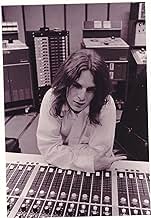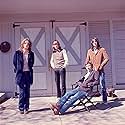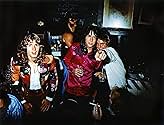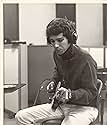IMDb-BEWERTUNG
7,1/10
1503
IHRE BEWERTUNG
Füge eine Handlung in deiner Sprache hinzuBig Star: Nothing Can Hurt Me is a feature-length documentary film about the dismal commercial failure, subsequent massive critical acclaim, and enduring legacy of pop music's greatest cult ... Alles lesenBig Star: Nothing Can Hurt Me is a feature-length documentary film about the dismal commercial failure, subsequent massive critical acclaim, and enduring legacy of pop music's greatest cult phenomenon, Big Star.Big Star: Nothing Can Hurt Me is a feature-length documentary film about the dismal commercial failure, subsequent massive critical acclaim, and enduring legacy of pop music's greatest cult phenomenon, Big Star.
Lester Bangs
- Self
- (Archivfilmmaterial)
Chris Bell
- Self
- (Archivfilmmaterial)
The Box Tops
- Themselves
- (Archivfilmmaterial)
Panther Burns
- Themselves
- (Archivfilmmaterial)
Alex Chilton
- Self
- (Archivfilmmaterial)
Steve Cohen
- Self - U.S. Congressman
- (Archivfilmmaterial)
The Cramps
- Themselves
- (Archivfilmmaterial)
Empfohlene Bewertungen
Terrific rock 'n roll documentary from Drew DeNicola chronicling the rise, the fall, and the third-act reunion of Big Star, a band of serious music guys out of Memphis, Tennessee. Formed in 1971 by Chris Bell, a local musician straight from college, and led by Alex Chilton (who had previously been the lead vocalist with the Box Tops), the group--their name taken, apparently in desperation, from a Memphis grocery store--recorded two critically-acclaimed but non-selling albums before splintering (the band's third album, practically a Chilton solo, is given the short shrift here; was it ever considered completed by Chilton? And what was his reaction when it was finally officially released?). Interviews with the surviving musicians (a slimming group), crew members and relatives provide much of the information needed to put together a fairly clear picture of what the music scene was like in the early 1970s (with poor label distribution and Clive Davis' dismissal from Columbia Records two factors cited in destroying the band). The in-group melodrama is kept to a rather surprising minimum, while the snippets of Big Star's recordings (with Bell and Chilton a disparate yet fully-melded musical duo) are glorious to hear. *** from ****
I went into the theater expecting a rock-n-roll documentary about a group I'd never heard of. I agree with many of the reviewers here that the film starts slowly and appears to want to convince me that this extraordinary ensemble just didn't get the break they needed. The point was pounded home time and again but, not being an big fan of rock-n-roll I felt the need of more evidence, until the story began to break about the individuals in the band and the emotional content of their work together and their lives. It was as if they all--with the exception of Chris Bell--assumed they'd get what they deserved, and too bad if that was less than it might be. Here is where the story begins to become intriguing, but the payoff is not complete.
I am the same age as the Beatles, roughly, and bought their albums and the mythology that went along with them. I admit I didn't know much more about rock-n-roll than that. If you'd ask me what the band who produced "The Letter" was I would probably have said The Monkees. In fact, the lead singer on that number was Alex Chilton, who became the central member of Big Star.
In the q-and-a after the showing of BIG STAR, the director revealed that much of the angst endured by Chris Bell had to do with homosexuality, and there is an area of silence around this facet his life when you are interviewing his family and remaining friends. The nugget of information would be crucial to the narrative of the band and explain to a degree why the film didn't fully work for me. I could tell Bell was difficult, tormented, and probably a genius--but what his demons were, and what his relationship with Chilton was, was not even hinted at. He seemed petulant and jealous that Chilton became the star of the group, but the level of disillusion, betrayal and pain didn't seem to come from anywhere.
The film made me think; it informed me of much I didn't know about the Memphis scene and rock-n-roll in the 70s, when I was off into folk and then into old-time pop music and jazz. I parted company with the mainstream but not to the degree Big Time did. Nevertheless it is interesting to learn about their path. Now that I know there is a great deal more to their story, I would love to hear that as well.
I am the same age as the Beatles, roughly, and bought their albums and the mythology that went along with them. I admit I didn't know much more about rock-n-roll than that. If you'd ask me what the band who produced "The Letter" was I would probably have said The Monkees. In fact, the lead singer on that number was Alex Chilton, who became the central member of Big Star.
In the q-and-a after the showing of BIG STAR, the director revealed that much of the angst endured by Chris Bell had to do with homosexuality, and there is an area of silence around this facet his life when you are interviewing his family and remaining friends. The nugget of information would be crucial to the narrative of the band and explain to a degree why the film didn't fully work for me. I could tell Bell was difficult, tormented, and probably a genius--but what his demons were, and what his relationship with Chilton was, was not even hinted at. He seemed petulant and jealous that Chilton became the star of the group, but the level of disillusion, betrayal and pain didn't seem to come from anywhere.
The film made me think; it informed me of much I didn't know about the Memphis scene and rock-n-roll in the 70s, when I was off into folk and then into old-time pop music and jazz. I parted company with the mainstream but not to the degree Big Time did. Nevertheless it is interesting to learn about their path. Now that I know there is a great deal more to their story, I would love to hear that as well.
Big Star fans will undoubtedly eat this up, and those unfamiliar with the band absolutely should watch it as well. Lots of fantastic interviews with people who were heavily involved with the production of their records, and I am also grateful for a healthy dose of information on Chris Bell (which seems incredibly hard to come by, even in this age). After watching the film I had a hard time figuring out if this film preaches to the converted, or actually makes an attempt to introduce the uninitiated to this incredible band. I thought I knew quite about the band prior to watching this, but after watching this I realize how little I really knew.
Really bored this evening and decided to watch this documentary which turned out to be both tragic, and heartwarming....bittersweet. It was just heartbreaking to see their journey, with big dreams and great material, turn into their broken dreams which would later inspire thousands of fans and dozens of musical acts. Really beautifully done.
10cebelina
Lovely, poignant and beautiful the story of Big Star is fraught with the inescapable trappings of life that both manage to bind and also free us. There is already a wonderful review by David Ferguson. His review sums up much of what you'd actually expect to find on the liner notes of a DVD compilation release of this movie. And he's spot on. My review won't add or be any better. In the end my review will only add a bit of the haunting beauty and power that was Big Star and that lingers with us. A black diamond glimpse into the souls of not only Big Star but each and every one of us. A cautionary song/tale that sums up much of what I think the movie offers: "Take care not to hurt yourself Beware of the need for help You might need too much And people are such Take care, please, take care Some people read idea books And some people have pretty looks But if your eyes are wide And all words aside Take care, please, take care. This sounds a bit like goodbye In a way it is I guess. As I leave your side. I've taken the air. Take care, please, take care. Take care, please, take care." Wm Alexander Chilton
Wusstest du schon
- PatzerWhen listing current artists that were influenced by Big Star, Elliott Smith is seen introducing a Big Star cover song on the Jon Brion Show with the date 1996. The show was not recorded until 2000.
Top-Auswahl
Melde dich zum Bewerten an und greife auf die Watchlist für personalisierte Empfehlungen zu.
Details
- Erscheinungsdatum
- Herkunftsland
- Offizielle Standorte
- Sprache
- Auch bekannt als
- Большая звезда: Ничто не может причинить мне боль
- Drehorte
- Produktionsfirmen
- Weitere beteiligte Unternehmen bei IMDbPro anzeigen
Box Office
- Bruttoertrag in den USA und Kanada
- 105.998 $
- Eröffnungswochenende in den USA und in Kanada
- 15.096 $
- 7. Juli 2013
- Weltweiter Bruttoertrag
- 105.998 $
- Laufzeit1 Stunde 53 Minuten
- Farbe
- Seitenverhältnis
- 1.78 : 1
Zu dieser Seite beitragen
Bearbeitung vorschlagen oder fehlenden Inhalt hinzufügen

Oberste Lücke
By what name was Big Star: Nothing Can Hurt Me (2012) officially released in Canada in English?
Antwort



























